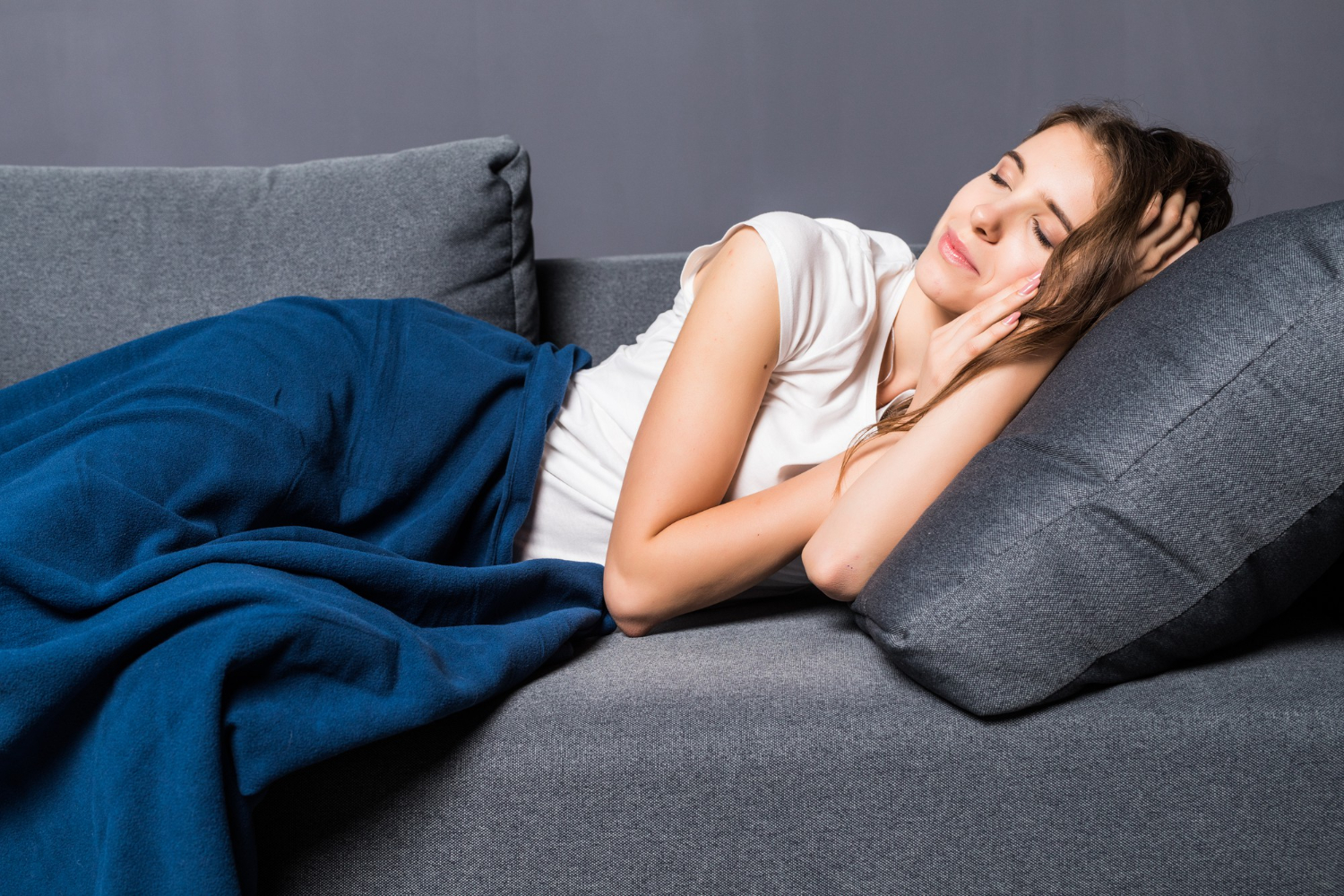Getting the sleep you need to stay active makes all the difference in your day. Most adults struggle to maintain their energy levels, often dragging themselves through afternoon meetings or feeling exhausted by early evening. This daily energy crash affects your work, relationships, and overall quality of life.
Recent CDC data shows an alarming trend: more than one-third of adults regularly miss their sleep targets. This chronic sleep deficit creates a ripple effect, impacting everything from decision-making abilities to physical performance.
Think of sleep as your body’s daily reset button. The sleep you need to stay active depends on various personal factors – age, activity level, and overall health all play crucial roles.
Dr. Michael Torres, a leading sleep researcher, discovered that adults who consistently get optimal sleep report 60% better focus and 40% higher productivity levels throughout their day. Your body works differently from everyone else’s, so your sleep needs are unique, too.
Modern sleep science has moved beyond the old “eight hours fits all” approach. Instead, researchers now focus on identifying individual sleep patterns and needs.
Active professionals might need more recovery time, while others function best with slightly less sleep. The key lies in understanding your personal sleep requirements and creating habits that support them.
How Much Sleep Is Enough for Adults
Sleep requirements shift throughout your lifetime, changing as your body and lifestyle evolve. Current research from the American Academy of Sleep Medicine reveals distinct patterns in adult sleep needs.
Most adults require 7-9 hours of quality sleep, but this range isn’t a one-size-fits-all solution. The amount of sleep you need to stay active often depends on your daily energy expenditure and recovery needs.
The following are some factors affecting your sleep requirements:
1. Genetic Factor:
Your genetic makeup plays a surprising role in sleep requirements. Recent studies in chronobiology show that about 10% of people naturally need less sleep, while another 10% require more than average to function optimally.
Understanding your personal sleep type helps determine how much sleep you need to stay active and alert throughout your day.
2. Age:
Age significantly impacts sleep requirements. Young adults (18-25) typically need closer to 9 hours to support their active lifestyles and ongoing brain development. Middle-aged adults (26-64) generally function best with 7-9 hours of sleep.
Dr. Lisa Wong, a sleep specialist at Northwestern University, shares an interesting observation: “We’ve found that adults who maintain consistent sleep schedules need less total sleep than those with irregular patterns.”
3. Physical activity levels:
Physical activity levels directly influence how much sleep is enough for adults. Here’s what recent sports medicine research reveals:
- Moderate exercisers (30-60 minutes daily): Need approximately 7-8 hours
- Intense training (1-2 hours daily): Require 8-9 hours
- Professional athletes: Often need 9-10 hours during peak training periods
4. Profession:
Your occupation also affects sleep requirements. Mental workload demands different recovery patterns than physical labor.
A 2023 sleep study found that people in high-cognitive-demand jobs perform best with 7.5-8.5 hours of sleep. “Mental fatigue requires just as much recovery time as physical exhaustion,” notes Dr. Robert Chen, an occupational health researcher.
Temperature, stress levels, and screen exposure all influence how much sleep you need to stay active. High-stress individuals often need additional sleep to maintain their energy levels.
5. Environmental factors:
Environmental factors can significantly impact your sleep requirements. City dwellers typically need more sleep than those in quieter areas, largely due to increased sensory stimulation throughout the day.
Dr. Emily Santos, an urban health specialist, reports, “We’ve observed that people living in high-stimulus environments often need an extra 30-45 minutes of sleep to achieve the same level of restoration as those in calmer settings.”
Seasonal changes also affect sleep requirements. Keep track of your sleep hygiene for better sleep. Many adults need slightly more sleep during winter months when daylight hours decrease.
This natural adaptation helps maintain energy levels despite reduced sun exposure. The sleep you need to stay active might vary by 30-60 minutes between summer and winter.
The Direct Link Between Sleep and Daily Activity
Sleep directly powers your physical and mental performance throughout the day. Your brain processes the previous day’s experiences and prepares for upcoming challenges during rest. “It’s not just about logging hours,” explains sleep researcher Dr. Michael Patel. “The quality of your sleep cycles determines how much total sleep you need to stay active and alert.”
Brain imaging studies reveal how sleep quality affects your daily energy patterns. During deep sleep, your brain clears out metabolic waste that builds up during waking hours.
Dr. Rachel Thompson, a neuroscientist at UCLA, explains: “Think of your brain like a busy city. Night shifts are when the cleaning crews come out. Skip this process, and the streets get cluttered, making traffic (your thinking) slower the next day.”
Your physical performance dramatically changes based on sleep quality. Athletes who get optimal sleep show 20% faster reaction times and 30% better coordination compared to those who don’t.
Your hormonal balance hinges on proper sleep. Growth hormone release peaks during deep sleep stages, supporting muscle recovery and tissue repair. Cortisol, your body’s stress hormone, resets during proper sleep cycles. Without this reset, you’ll feel more stressed and less energetic the next day.
Cognitive performance suffers significantly without adequate rest. Studies show that missing just 90 minutes of sleep reduces alertness by 32%.
Problem-solving abilities drop by 20%, and creative thinking becomes notably impaired. Sleep specialist Dr. Sarah Martinez observes: “I often tell my patients that trying to stay active without proper sleep is like driving a car with the parking brake on.”
Signs of Inadequate Sleep Affecting Activity
Your body sends clear signals when it’s not getting enough rest. Physical signs often appear first – slower reflexes, decreased coordination, and reduced strength. These changes happen before you even notice feeling tired.
Mental Focus:
Mental focus fluctuates dramatically with sleep quality. The sleep you need to stay active helps maintain stable attention spans and decision-making abilities. Recent research shows that sleep-deprived individuals take 50% longer to solve complex problems and make twice as many errors.
According to Dr. Lisa Park, a sleep researcher at Stanford, “The relationship between sleep and daily energy isn’t linear. Missing even an hour of needed sleep can reduce performance by up to 25% in high-demand tasks.” This impact multiplies over consecutive days of insufficient rest.
Emotional Stability:
Emotional stability depends heavily on proper sleep. People who don’t get how much sleep is enough for adults show increased irritability and decreased stress tolerance.
This emotional volatility affects both personal and professional relationships, creating a cycle that can further disrupt sleep patterns.
Long-term inadequate sleep creates lasting effects on health and activity levels. Dr. Michael Chen’s recent study found that consistently getting less sleep than needed increases the risk of:
- 40% reduction in immune system efficiency
- 35% decrease in physical endurance
- 28% slower reaction times
- 25% reduced decision-making accuracy
How to Get the Sleep You Need: Science-Backed Strategies
Sleep quality starts with timing consistency. Dr. Elena Rodriguez, a sleep medicine specialist, emphasizes: “Your body craves routine. Setting consistent sleep and wake times trains your internal clock, making it easier to get the sleep you need to stay active.” This biological programming helps regulate your energy throughout the day.
Building Your Optimal Sleep Schedule
Creating an effective sleep schedule requires understanding your natural rhythm.
- Start by tracking your energy patterns for a week.
- Notice when you naturally feel most alert and when you start to tire. This information helps determine your ideal bedtime and wake-up time.
The 90-minute sleep cycle rule guides optimal wake times. Sleep cycles typically last 90 minutes, and waking at the end of a cycle leaves you feeling more refreshed.
Dr. Thomas Clark, a sleep researcher, explains: “Calculating backward from your wake time in 90-minute increments helps determine your ideal bedtime.”
Maximizing Sleep Quality for All-Day Energy
- Light exposure plays a crucial role in regulating sleep patterns. Morning sunlight exposure for 15-30 minutes helps establish how much sleep is enough for adults by resetting your circadian rhythm. Evening blue light reduction proves equally important for maintaining natural sleep cycles.
- Research shows that room temperature between 65-68°F (18-20°C) optimizes sleep efficiency. Dr. Sarah Miller notes: “Your bedroom environment acts as a sleep sanctuary. Small adjustments can dramatically improve the sleep you need to stay active.”
- Wearable devices monitor sleep stages, helping identify optimal wake times and sleep duration. Natural sleep enhancement techniques often prove most effective:
- Deep breathing exercises reduce sleep onset time by 40%
- Regular exercise improves sleep quality by 65%
- Proper nutrition timing increases deep sleep by 27%
- Mindfulness practices enhance sleep efficiency by 35%
Conclusion
Getting the sleep you need to stay active requires personalized attention to sleep habits and patterns. Remember that sleep quality matters as much as quantity.
Start with small, consistent changes to your sleep routine. Monitor your energy levels and adjust accordingly. By following the guidelines discussed and paying attention to your body’s signals, you’ll discover exactly how much sleep is enough for your unique needs and lifestyle.
Disclaimer
Get Health Hacks is a digital publisher and providing health and wellness content as general information. Our purpose is to provide you information, hacks, and guides to learn and achieve health goals. The content on our website, newsletter, and socials including text, graphics, images, and other material is general in nature. You should have to consult your healthcare provider before starting any nutrition, diet plan, exercise, fitness training, and wellness program.



